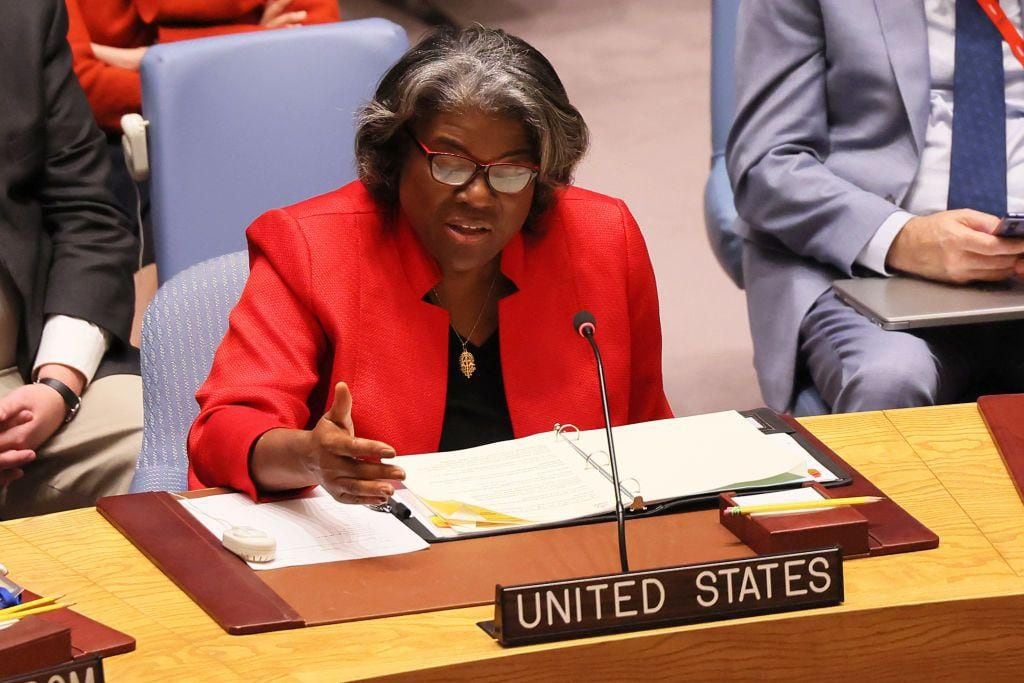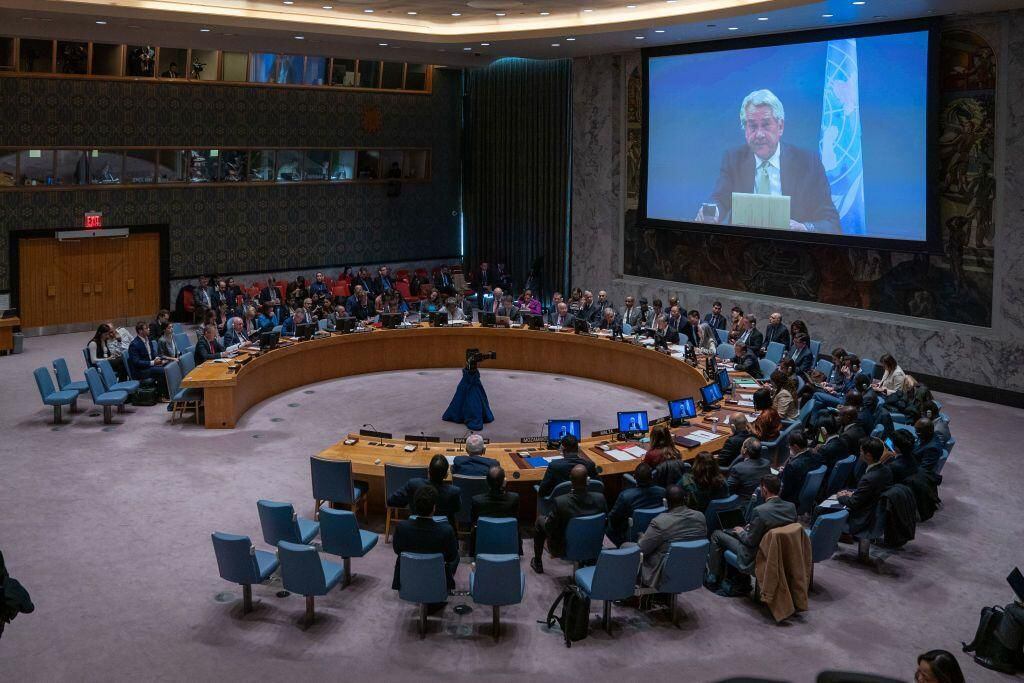UN Secretary-General António Guterres warned of a “serious risk of humanitarian collapse” in Gaza.
And this Wednesday he made an urgent appeal for a humanitarian ceasefire in the Strip with a relatively unusual action: invoked article 99. of the UN Charter.
WATCH: How Moscow pressures Ukrainians in occupied areas to become Russian citizens
This tool is, in essence, a warning to the Security Council about “any matter which, in its opinion, may threaten the maintenance of international peace and security“, according to the United Nations description.
“The situation is rapidly deteriorating towards a catastrophe with potentially irreversible implications for Palestinians as a whole and for peace and security in the region. This outcome must be avoided at all costs”, wrote the UN leader in a letter to the President of the Council to justify the invocation of article 99.
In the letter, Guterres urged the institution responsible for ensuring international security to intervene to prevent a humanitarian catastrophe through a ceasefire request that facilitates the delivery of aid and protects the civilian population.
The UN Secretary General alluded in his letter to the more than 15,000 deaths reported on the Palestinian side and 1,200 on the Israeli side, forced displacement, human rights violations and the precarious situation of the health system in Gaza as a result of the war.
AND the first time Guterres invokes Article 99. since assuming the role of UN Secretary-General in 2017.
In a letter to the President of the Security Council, he stated that the situation in Gaza is deteriorating rapidly, with potentially irreversible implications for Palestinians and security across the region.
But what does the invocation of article 99 mean?
A pressure tool
The UN consists of two main bodies: the General Assembly and the Security Council.
In the General Assembly all member states are represented, but their decisions are not binding. The Council, in turn, is the decision-making body whose resolutions are, in theory, binding on all countries.
However, in conflicts such as that between Israel and Hamas – or between Russia and Ukraine – each of the 5 permanent members of the Council (United States, United Kingdom, France, China and Russia) has the right to veto any resolution.
In the conflict between Israel and Hamas, the US position so far has been to block truce initiatives, believing they would benefit the Islamic group.

Article 99 does not confer any power on the secretary generalin addition to forwarding matters to the Security Council.
In this case, invoking it serves to alert the Security Council that the situation in Gaza is on the brink of a humanitarian catastrophe.
This is directed pressure members to urgently negotiate, draft and pass a resolution demand a ceasefire
Or that, at least, the permanent members do not use their right to veto if the other members present a proposal in this regard.
“He wants to pressure the Security Council to request a humanitarian ceasefire and meet this week”, summarizes Nada Tawkif, BBC correspondent in New York, where the United Nations headquarters are located.
But even if that happened, and even if the Council passed an urgent resolution to demand a ceasefire, the parties involved (Israel and Hamas) could ignore the institution’s mandate and continue the attacks.
Tawkif states that “this drastic measure by the UN chief is also a powerful expression of his frustration with the Security Council and a reminder of its responsibilities”.
The precedents
The description of a “drastic movement” responds, above all, to the fact that Guterres’ action has few precedents in history.
Previous UN secretaries-general have only formally invoked Article 99 of the UN Charter on three occasions.

The first was in 1960, when the then leader of the institution, Dag Hammarskjöld, requested an urgent meeting of the Security Council on the crisis in Congo, implicitly alluding to the article.
“I have to draw the attention of the Security Council to a matter which, in my opinion, may threaten the maintenance of international peace and security,” he claimed then, in what became known as the “Hammarskjöld letter” of July 13, 1960. .
His communication triggered a rapid response from the Council, which The following day, he authorized the sending of a UN military operation in support of the Congolese government.
Hammarskjöld, who held the position between 1953 and 1961, went so far as to claim that Article 99 had transformed the secretary-general “from a purely administrative official into an official with explicit political responsibility”.
The article was officially invoked two more times: the American hostage crisis in Iran in 1979 and the escalation of violence in Lebanon in 1989.
Contrary to the 1960 precedent, in neither of these two contingencies did the Security Council authorize military interventions.
On other occasions, different UN leaders have urged, without invoking Article 99, the Council to act in serious situations.
Over the past decade, internal United Nations reports have highlighted the lack of formal and effective early warning, and on several occasions the institution has encouraged the Secretary-General to make use of the aforementioned article when necessary to alert the Security Council.
Source: Elcomercio
I am Jack Morton and I work in 24 News Recorder. I mostly cover world news and I have also authored 24 news recorder. I find this work highly interesting and it allows me to keep up with current events happening around the world.

:quality(75)/cloudfront-us-east-1.images.arcpublishing.com/elcomercio/UC6E7ZQGPZB4BE6MQXIOTG5GKE.jpg)

:quality(75)/cloudfront-us-east-1.images.arcpublishing.com/elcomercio/UZB52HDUMNDFVMAJO32PF4MAAA.jpg)

:quality(75)/cloudfront-us-east-1.images.arcpublishing.com/elcomercio/FKDH7UUV7RHKNNFEU3WXPM7T5U.jpg)
:quality(75)/cloudfront-us-east-1.images.arcpublishing.com/elcomercio/KNY2ASCAXRGWPGEL2ACOZATVSE.jpg)
